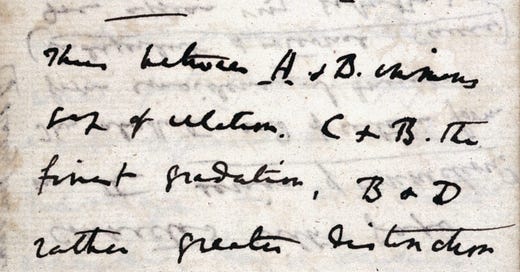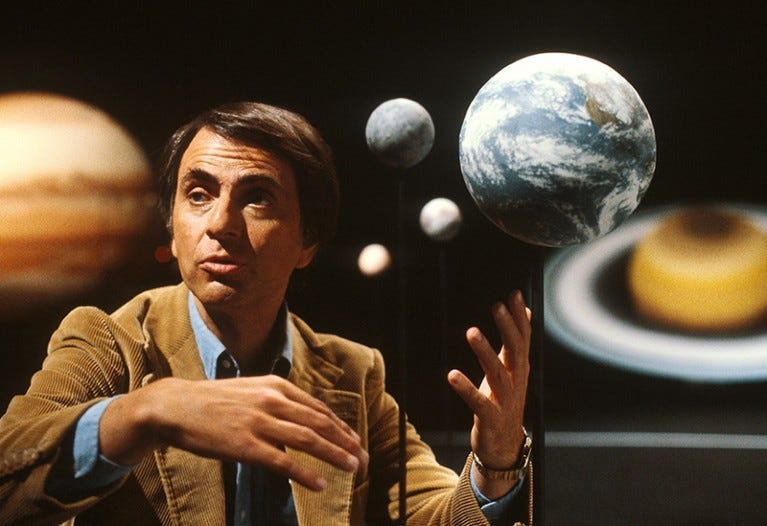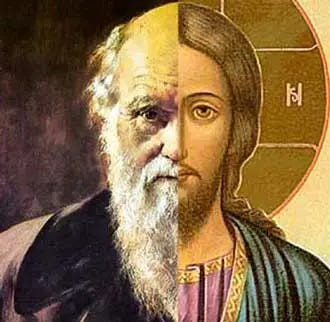Did Science Discover the Immortal Gene?
The Case for Unifying Science and Religion (Part Three)
This is the third installment of my new Substack series, “The Case for Unifying Science and Religion”. The history of the relationship between the two has been marked by enmity. Religion has a bad track record of vilifying science, which includes burning scientists alive at the stake during the Inquisition. Science hasn’t helped matters by too often labeling all religion as either ignorance or mental illness. Both positions are extreme, and unnecessary.
It’s not germane to this article to give an accounting of the historical bad blood between science and religion for which Charles Darwin seems to have become the eternal poster child. Old animosities die hard, but no longer does a person run the risk of being strapped to stretching racks as punishment for their latest scientific discovery.
When it comes to science and religion, the prevailing view is that the two should stay in their respective lanes and not encroach upon the other. Science and religion is mostly construed as two totally different and unrelated endeavors, the first relying upon an empirical method for acquiring knowledge, while the latter justifies its truth by faith. You may already see the problem here, which is the misleading implications that science never operates within the realm of “faith” (reliance on assumptions that can’t be proved), and all religious beliefs and practices are void of any empirical investigation or evidence.
American psychologist, Tania Lombrozo, has published several notable articles for NPR as it relates to the topic of science and religion, including the role of “faith” in both. Consider reading these four insightful and nuanced (and brief) pieces as an assignment for this series.
Science and Religion as Allies
My aim in this series is to make a case for science and religion to be allies, which likely requires some people to understand religion better and others to understand science better. I’ve spent much of my life seeking to better understand both.
I thought I understood “religion” properly with my theological degree and career in Christian ministry. For many years, tens of thousands of people looked to me as the religious expert. The best thing I ever did to better understand religion was to leave it. My deconstruction process took me into fields such as philosophy, biblical criticism, philosophy of religion and psychology of religion, which reshaped how I thought of religion with much more depth and nuance. Meanwhile, my investigation of the natural sciences, and social sciences became a new passion of mine, which has never waned.
Part One of this series is titled, WWSD? What Would (Carl) Sagan Do? I have chosen Carl Sagan as the patron saint for reconciling and unifying science and religion. From hereon, I will refer to him as Saint Sagan. In Part One I wrote:
During my religious deconstruction process many moons ago, it was Carl Sagan who helped expel my evangelical fear of science. His book The Demon-Haunted World: Science as a Candle in the Dark impacted me deeply. Sagan wrote, “Science is not only compatible with spirituality; it is a profound source of spirituality.”
Carl Sagan often stated that when we understand our place in the cosmos, the intricate details of life, and the immense scale of time and space, it can lead to feelings of profound wonder and humility, which he considered a spiritual experience. Though not religious in the traditional sense, Sagan did not see science as inherently opposed to spirituality, suggesting that a “cosmic religion” based on scientific understanding could be a powerful source of meaning. Sagan emphasized the need for skepticism and critical thinking in both science and spirituality, cautioning against accepting beliefs without evidence.
Part Two article of this series is titled, Can you believe in Darwin and Jesus? The question itself subtly implies the likelihood that you can’t insofar as Jesus represents the Christian belief in God, and Darwin blew up the foundation on which the belief in God stands. But in my opinion, as I share in the article, Jesus would have likely embraced Darwinian evolution had it been an option.
Despite being demonized by traditional Christianity, the cardinal sin of Charles Darwin was simply doing biology; his heresy, evolution by natural selection. Darwin’s goal in life was not to destroy religion or belief in God, his interest in the natural sciences was to find an explanation for the origin of species.
In his book, The Origin of Species, Darwin essentially had two goals - to prove that modern species were revised and evolved descendants of earlier species, and to show how the process of “descent with modification” had occurred. The popular Darwinian term for this process or algorithm is “natural selection”. Natural selection is the mechanism of evolution. Organisms that are more adapted to their environment are more likely to survive and pass on the genes that aided their success. This process causes species to change and diverge over time.
Today’s article includes Darwin’s picture (top of page) “Tree of Life”, one of the most famous drawings in the history of science. It was sketched in his field notebooks of 1837. Darwin posited that there is a single Tree of Life from which all living things, represented by limbs, branches, and twigs, are united by descent with modification.
When he drew this picture in 1837 most people in the Western world would have thought that each species existed as a result of its being created by God. The Origin of Species was published in 1859, and in 1882 German philosopher Friedrich Nietzsche declared “God is dead” as the logical consequence of Darwin’s theory of evolution, which I discuss in the article, The Perfect Murder.
About his theory of evolution, Darwin wrote:
“If during the long course of ages and under varying conditions of life, organic beings vary at all in the several parts of their organization, and I think this cannot be disputed; if there be, owing to the high geometrical powers of increase of each species, at some age, season, or year, a severe struggle for life, and this certainly cannot be disputed; then, considering the infinite complexity of the relations of all organic beings to each other and to their conditions of existence, causing an infinite diversity in structure, constitution, and habits, to be advantageous to them, I think it would be a most extraordinary fact if no variation ever had occurred useful to each being's own welfare, in the same way as so many variations have occurred useful to man. But if variations useful to any organic being do occur, assuredly individuals thus characterized will have the best chance of being preserved in the struggle for life; and from the strong principle of inheritance they will tend to produce offspring similarly characterized. This principle of preservation, I have called, for the sake of brevity, Natural Selection.”
Darwin further wrote:
“What limit can be put to this power, acting during long ages and rigidly scrutinizing the whole constitution, structure, and habits of each creature, — favoring the good and rejecting the bad? I can see no limit to this power, in slowly and beautifully adapting each form to the most complex relations of life.”
Darwin’s assertion about the limitless implications of evolution seems to have been a foreshadowing of Universal Darwinism, a term coined by Richard Dawkins in an essay published in 1983. Dawkins wrote, “If we find life beyond this earth, it will surely evolve by the principles of Darwinism.” Universal Darwinism finds the theory of evolution applicable to a wide variety of other domains, including psychology, linguistics, economics, culture, medicine, computer science, and physics.
Keep reading with a 7-day free trial
Subscribe to Deconstructionology with Jim Palmer to keep reading this post and get 7 days of free access to the full post archives.







